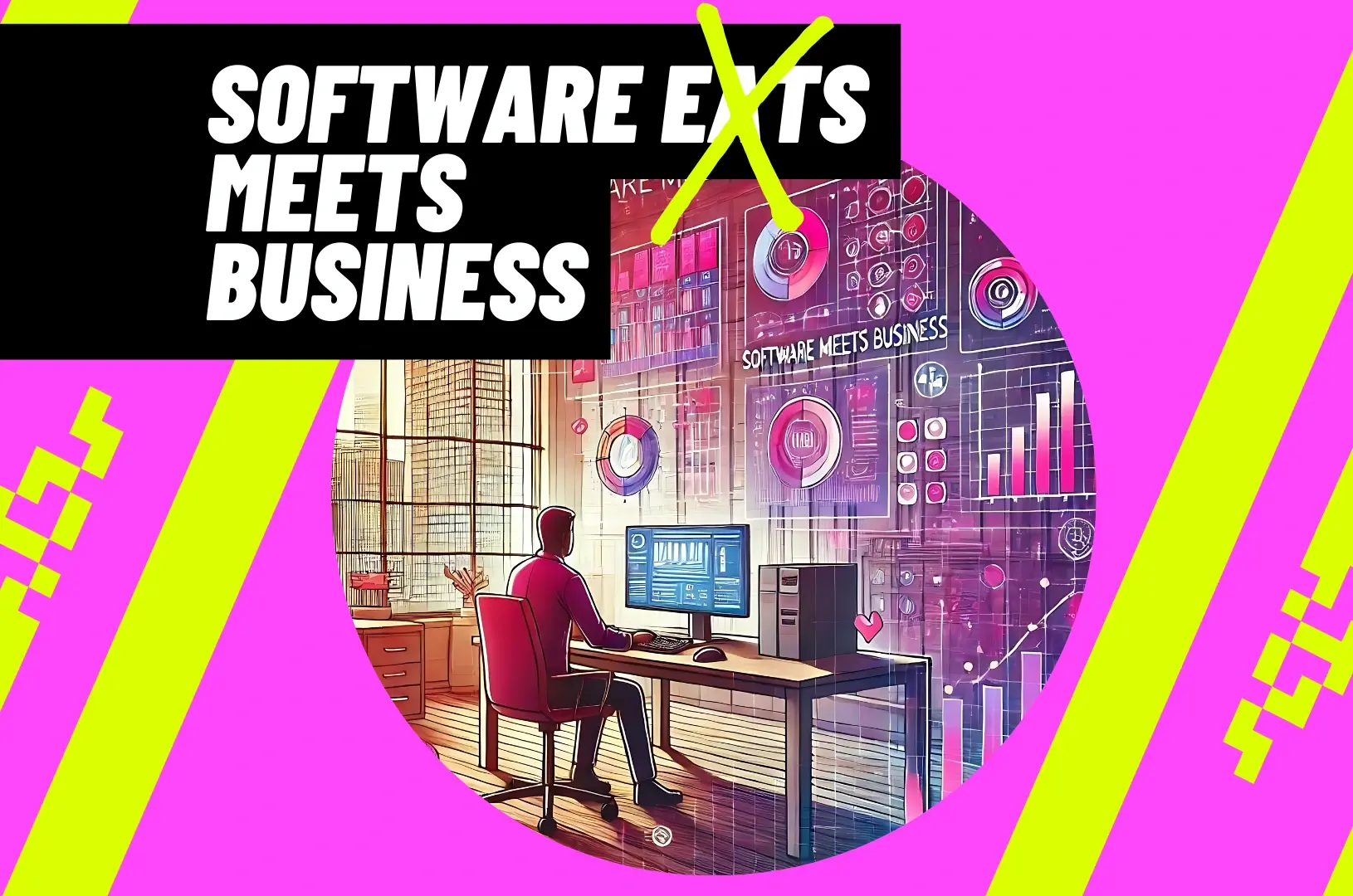
Navigating Software Development Without a CTO: Isabel Acland CMO's Journey - E8
This episode dives into the challenges of working with agencies, transitioning to freelancers, and how Isabel has learned to lead and inspire technical teams in a non-technical role.
This episode will explore Isabel Acland’s unique experience of managing software teams without a technical background, from her time at Brainlabs and Switchcraft to her current role as CMO at Powermeals.
[00:00:11]
Rich: Welcome to another episode of Software Meets Business! Today, I’m joined by Isabel Ackland, the Chief Marketing Officer at Power Meals. Isabel, welcome!
Isabel: Hi, it’s great to be here.
Rich: So glad to have you on the podcast. You’ve had some fascinating experiences working with and managing software teams—especially as someone without a technical background.
Isabel: That’s right. I’m a marketer by training. My only hands-on tech experience was a bit of MATLAB during my degree, and that’s long forgotten!
Rich: MATLAB counts—programming is programming! Let’s go back to the start. Was BrainLabs the first time you worked with software teams?
Isabel: Yes. I joined BrainLabs when it was a very small marketing agency—just 20 people. But about a quarter of the team were tech-focused, which was unique for an agency. One of our key selling points was using technology to automate and speed up parts of the marketing process. That’s where I had my first experience collaborating with tech teams.
[00:01:46]
Rich: How did that collaboration work at BrainLabs?
Isabel: It was… interesting! Back then, keyword bidding on Google Ads was done manually. You’d be bidding on thousands of keywords like “red trainers for Nike shoes,” constantly optimising to rank well while managing costs. That kind of work involves processing large amounts of data, and there was plenty of room to automate. BrainLabs used Google Ads scripts to automate tasks like A/B testing and bid adjustments. But at the time, getting access to tech resources was a bit of a social game. If you had a big manual task, you’d have to convince a tech team member to work on your project.
[00:02:49]
Rich: So, you had to pitch your ideas to developers?
Isabel: Yes! Developers were roughly assigned to clients, but their work was very much demand-driven. You had to persuade them that your idea was worth their time. It was informal, but it worked in the early days because the tools they built were directly useful for the marketing teams. Eventually, as the company grew, we formalised the process. We introduced a voting system where the account teams voted on which tech projects should be prioritised.
[00:03:49]
Rich: How did the voting system work?
Isabel: Initially, it was simple—everyone had one vote. But later, we introduced a points system. Managers received points based on their clients’ billings, and they could allocate those points to projects they wanted prioritised. Bigger projects required more points. The tech team also kept a portion of the points to allocate toward projects with strategic or commercial potential. It kept the process democratic but also allowed for strategic input.
[00:05:45]
Rich: Did that system work well?
Isabel: It did! It kept development aligned with business needs and made prioritisation transparent. The challenge, however, was delivering projects by specific deadlines, like Black Friday campaigns. Sometimes we had to override the voting system to meet client demands.
[00:06:12]
Rich: And after BrainLabs, you moved to Switchcraft. What was that like?
Isabel: Switchcraft was an energy-switching fintech startup, and the setup was quite different. One of the founders was technical, which helped bridge the gap between business needs and technical realities. At Switchcraft, we followed a more traditional roadmap. We collaborated on defining the roadmap, wrote specs, and worked toward delivery timelines. It was less dynamic than BrainLabs but more structured.
[00:09:38]
Rich: Looking back at your experiences at BrainLabs and Switchcraft, what lessons did you carry forward?
Isabel: Both approaches had their pros and cons. At BrainLabs, I learned the importance of aligning development with business priorities. At Switchcraft, I saw the value of a well-defined roadmap. The biggest takeaway was understanding the balance between business impact and technical effort. Bridging that gap is crucial for making informed decisions.
[00:11:53]
Rich: Then you joined Power Meals. What brought you there?
Isabel: My move to Power Meals was partly driven by relocating to Switzerland during the pandemic. Power Meals is a meal delivery startup specialising in ready-to-eat meals delivered across Switzerland. When I joined, there was no technical person or CTO in the team, which made things interesting.
[00:12:56]
Rich: No CTO? So, how did you handle software development?
Isabel: Power Meals was working with an agency. Before I joined, they had been with an Indian agency, but after a five-day website outage, they switched to a more professional Polish agency. The Polish agency provided a team of four: a project manager for communication, a QA specialist to ensure quality, and two developers.
[00:15:44]
Rich: Was that team structure in place when you joined, or did you help define it?
Isabel: It was already in place, but I worked closely with them to meet our needs. The project manager was particularly helpful in bridging the communication gap between us and the developers. However, we eventually realised this setup was overkill for what we needed. While the agency was professional and effective, it was expensive for a startup like ours.
[00:17:38]
Rich: So, what was your next move?
Isabel: We decided to move away from the agency model and work directly with freelancers. It was a bold decision given that we didn’t have in-house technical expertise, but it significantly reduced costs. Now, we work with two contractors who each give us two days a week. I manage their priorities directly.
[00:23:55]
Rich: How did you find good freelancers?
Isabel: That was tricky. We hired a friend with technical expertise to help review profiles and check code quality. They assessed candidates’ technical skills while I focused on culture fit and responsiveness during interviews.
[00:26:00]
Rich: Reflecting on your journey, what are the key lessons you’ve learned about managing software teams?
Isabel:
-
Invest time in scoping: Even if you think you’ve covered everything, you haven’t. The more detailed your specs, the smoother the development process will be.
-
Stay flexible: Priorities can change, especially in a startup. Having the ability to pivot can make a big difference.
-
Engage the team: Developers are more motivated when they understand the impact of their work. Sharing results—like how a feature drove revenue growth—goes a long way.
[00:29:17]
Rich: So, what’s next for Power Meals?
Isabel: We’re focused on capturing the Swiss meal delivery market and continuing to improve our tech setup. It’s all about scaling and refining what we have.
[00:29:47]
Rich: Isabel, thank you so much for sharing your journey. Your experiences highlight how crucial it is to build strong relationships with software teams—even without a technical background.
Isabel: Thank you! It’s been great to share. I hope others find some useful takeaways.

Contact us.
If you need a partner in software development, we're here to help you.
We will respond to your enquiry immediately.